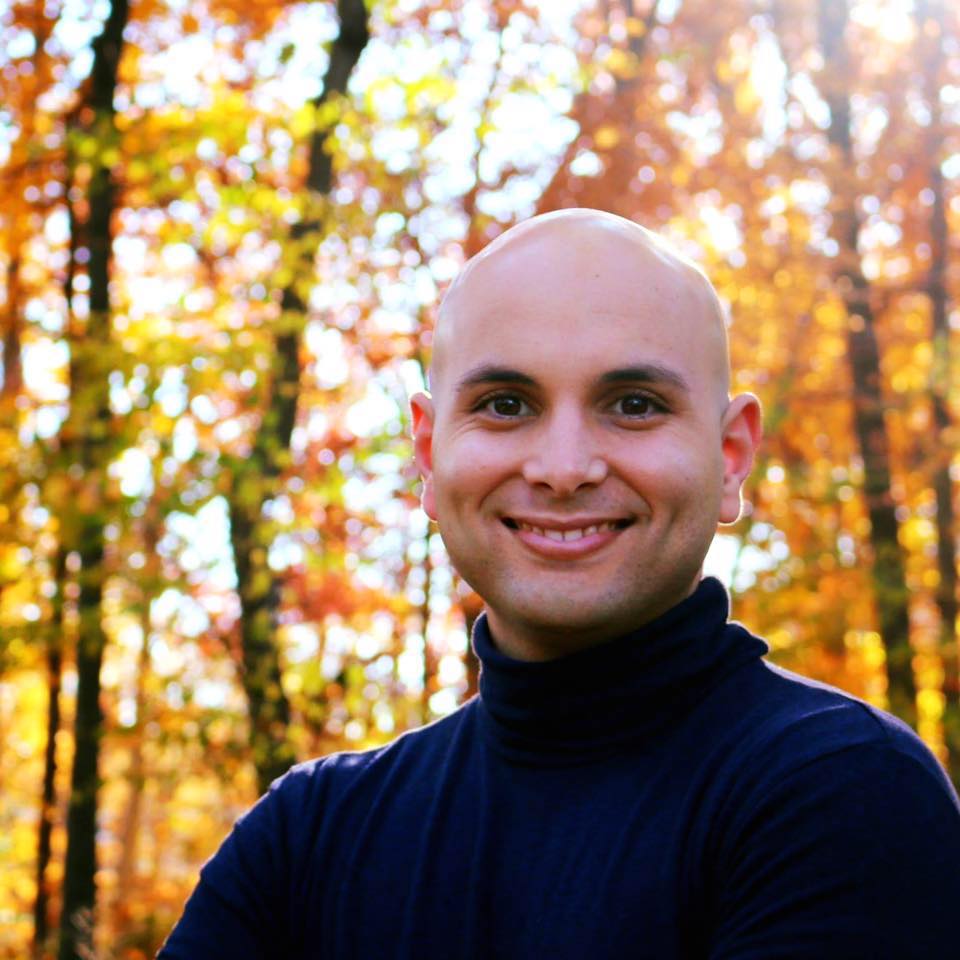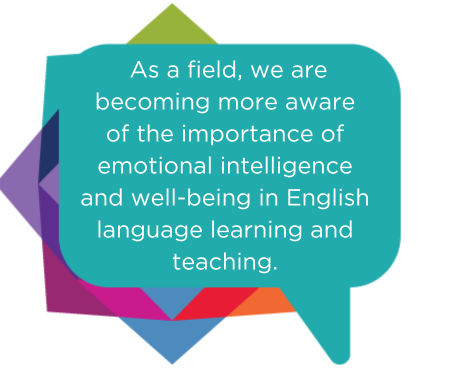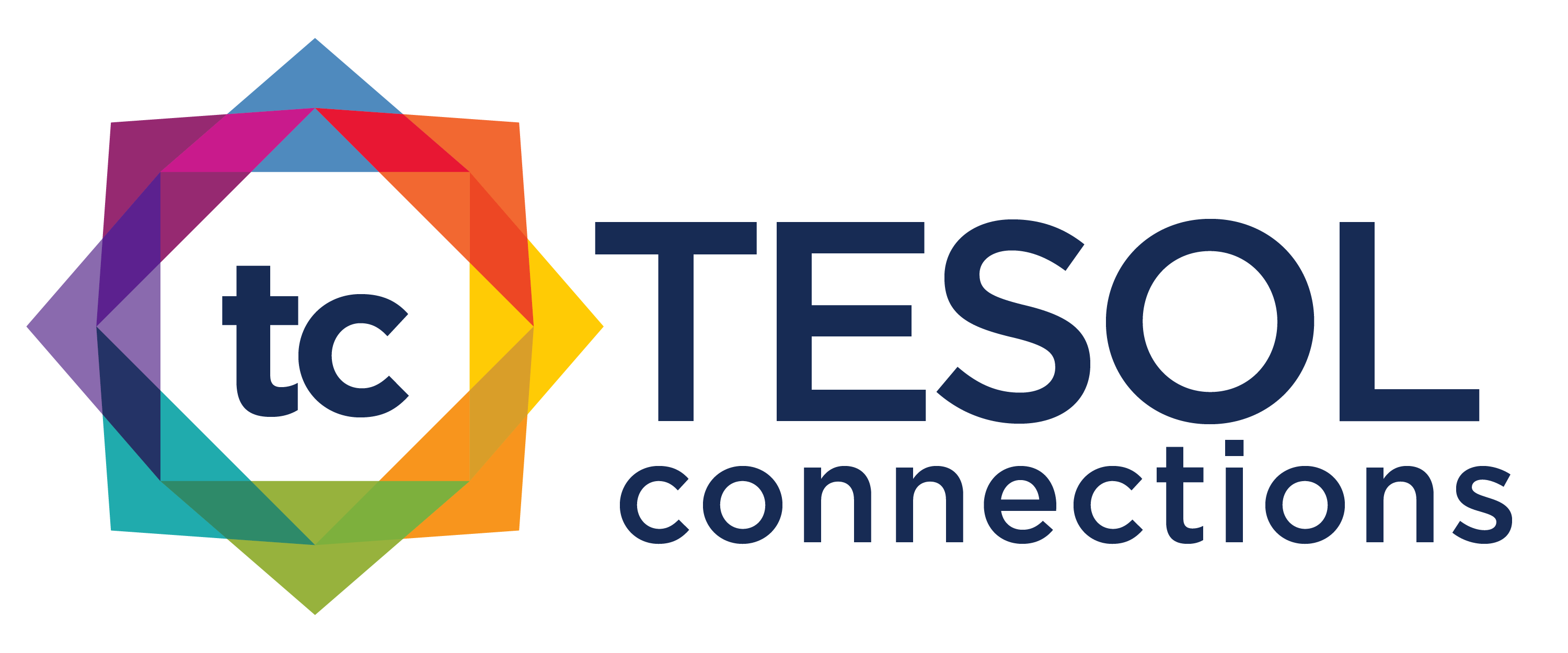KEEPING ENGLISH LANGUAGE PROFESSIONALS CONNECTED
Spotlight on the 2024 TESOL Teacher of the Year: Luis Javier Pentón Herrera
 Luis Javier Pentón Herrera, PhD, is the 2024 TESOL Teacher of the Year. Dr. Pentón Herrera is a full professor at Akademia Ekonomiczno-Humanistyczna w Warszawie, Poland. He also serves as coordinator of the Graduate TESOL Certificate at The George Washington University and is coeditor of Tapestry: A Multimedia Journal for Teachers and English Learners. In addition, he is a Fulbright specialist and an English language specialist with the U.S. Department of State. He previously served as Maryland TESOL's 38th president, and has earned the rank of Sergeant in the United States Marine Corps (USMC).
Luis Javier Pentón Herrera, PhD, is the 2024 TESOL Teacher of the Year. Dr. Pentón Herrera is a full professor at Akademia Ekonomiczno-Humanistyczna w Warszawie, Poland. He also serves as coordinator of the Graduate TESOL Certificate at The George Washington University and is coeditor of Tapestry: A Multimedia Journal for Teachers and English Learners. In addition, he is a Fulbright specialist and an English language specialist with the U.S. Department of State. He previously served as Maryland TESOL's 38th president, and has earned the rank of Sergeant in the United States Marine Corps (USMC).
Dr. Pentón Herrera’s current teaching and research projects are situated at the intersection of identity, emotions, and well-being in language and literacy education, social-emotional learning (SEL), autoethnography and storytelling, and refugee education. His books have been published by Routledge, Springer, Brill/Sense, De Gruyter, TESOL Press, Bucharest University Press, and Rowman & Littlefield. Read the press release from TESOL.
Following, Dr. Qian Du, Associate Professor of Teaching and Associate Director of Academic English at the University of California, Irvine, asks Dr. Pentón Herrera some questions to get to know him and his work a bit better.
Congratulations on receiving the TESOL Teacher of the Year Award! Could you first tell us how you got interested in teaching English and became a TESOL professional?
Thank you very much, Dr. Qian Du, for your congratulatory message and question.
I became an English teacher serendipitously. Let me begin by saying that I arrived in the U.S. at 16 years of age (I turned 17 right after arriving) with zero knowledge of English. My dad is a Cuban political refugee, and thanks to him, I was able to leave Cuba and arrive in the United States.
When I arrived in the U.S., everything was a shock for me. I remember the first time I walked into an American classroom. The smell of cleanliness, the sound of teachers speaking English, the feel of the air conditioning on my skin—absolutely everything was new, exciting, and intimidating all at the same time. Learning English was a difficult process for me because, in addition to learning English, I had to figure out how to navigate this new learning environment, while also working at a Wendy’s every day after school until late at night, which left me physically and mentally exhausted. Also, I remember feeling extremely overwhelmed by everything because most things were new to me (e.g., collaborative learning, computers, school libraries, school counselors, etc.). When I say that everything was a shock for me, I truly mean it—my entire world was upside down.
In addition to these external challenges, I also had to battle internal struggles, such as missing my mom, sister, aunt, and grandparents, who were not able to leave Cuba. Also, I constantly dealt with the reality that I could not keep my grades as excellent as they were in Cuba because of my English skills. In Cuba, I was always the student with the highest grades in my year/class, or among the top three. However, when I arrived in the U.S., understandably, my grades suffered, and this took a toll on my motivation and perception of myself as a “good student.” It was during this time that I realized the importance of English in my life, and I tried my best to learn as much and as fast as possible.
When I graduated from high school, I served in the United States Marine Corps (USMC), and this became another opportunity to continue learning and improving my English. It was interesting because, in the military, we speak a different type of English, if you will, which was very confusing to me. I think I must have had intermediate English proficiency when I joined the Marines, and my 4 years of honorable service were a full, immersive experience of English language learning.
After completing my military service, I pursued my bachelor’s degree in business administration, which was my military occupation while serving in the Marines. During this time, I felt that it was important to also volunteer in the community, so I began volunteering at an educational program that the city of Alexandria, VA, had at the time. One day, I was asked to teach a class to adult migrants and refugees in the community. In that class, we learned how to order a burger at McDonald’s. I was immediately hooked! My students’ happiness and appreciation made me feel a powerful emotion that I have yet to be able to describe with words. At the same time, this experience reminded me of my 17-year-old self—of my time struggling to learn English. This volunteering experience was a full-circle moment in my life, and it was thanks to this experience that I became an English teacher.
An important aspect of your work focuses on social-emotional learning (SEL) and English language teaching. Could you tell us a bit more about this conceptual framework?
Thank you very much for this question. SEL is commonly described as the process by “which children and adults acquire and apply competencies to recognize and manage emotions, set and achieve positive goals, appreciate the perspectives of others, establish and maintain supportive relationships, make responsible decisions, and handle personal and interpersonal situations constructively” (Osher et al., 2016, p. 645). In this definition, it is important to emphasize the word process because it denotes that SEL is not tied down to specific frameworks or practices. Instead, SEL is meant to be a pedagogical approach in which educators look at their students and their environments and implement practices that support their students’ social and emotional competence and intelligence. As my friend and colleague, Gilda, and I have previously mentioned (Pentón Herrera & Martínez-Alba, 2021), “SEL has no limitations; practitioners can modify SEL practices to fit their learning realities, students’ necessities, and subjects taught” (p. vii).
 I learned about SEL during my time teaching high school, although we did not call it as such, and I immediately recognized its importance for students and for us, teachers, as well. During the COVID-19 pandemic, I decided to go deeper into SEL, recognizing that the post-COVID world would need a kinder, more humane education system for students and teachers alike. It was during this time that I published my first SEL article (Pentón Herrera, 2020). Since then, I have continued my work with a book copublished with Gilda (Pentón Herrera & Martínez-Alba, 2021), as well as other articles and studies that can be found on my website.
I learned about SEL during my time teaching high school, although we did not call it as such, and I immediately recognized its importance for students and for us, teachers, as well. During the COVID-19 pandemic, I decided to go deeper into SEL, recognizing that the post-COVID world would need a kinder, more humane education system for students and teachers alike. It was during this time that I published my first SEL article (Pentón Herrera, 2020). Since then, I have continued my work with a book copublished with Gilda (Pentón Herrera & Martínez-Alba, 2021), as well as other articles and studies that can be found on my website.
SEL is, in my view, the future of English language teaching and of education itself. Through SEL, we recognize that our students and teachers are human beings with challenges, struggles, and equal potential for success with the right support and motivation. At the same time, through SEL, we, English teachers, can simultaneously support our learners’ emotional intelligence and creativity, which are essential skills in this new post-COVID, artificial intelligence reality. Last but not least, through SEL, we are able to recognize that the well-being of teachers and students is the first step in achieving quality education for a sustainable future.
Could you share some of the innovative teaching strategies that you have implemented to incorporate social-emotional learning (SEL) in your language teaching?
Great question! I think there are many strategies I can share with you since all of my classes are centered and envisioned through an SEL lens. From starting with check-in activities, to offering choice in how students choose to complete assignments, my entire teaching repertoire has been reconceptualized to focus on the simultaneous development of my students’ linguistic skills along with their social-emotional intelligence and creativity.
A recent example comes from a speaking course I taught recently at my university, where students (intermediate to advanced level) had to take a final exam on their speaking skills. Instead of doing a traditional speaking exam, I decided to give students the opportunity to work on a project where they demonstrated their speaking skills. Some students created a “TED Talk” video about a topic they were passionate about, while others worked on a public service announcement or a podcast episode. The different projects I received from my students allowed me to learn not only about my students’ interests but also about how creative and ingenious they are. As an SEL project, this approach to assessing speaking empowered students to express themselves authentically and empathetically, connecting their personal passions with language learning in a way that fostered SEL competencies such as self-awareness, self-management, social awareness, relationship skills, and responsible decision-making.
Looking ahead, how do you envision the role of social-emotional learning (SEL) evolving within the field of TESOL? Are there any emerging trends or areas of research that you believe will become increasingly important?
To date, there isn’t much work or information about SEL in the field, but I am thrilled to see passionate, empowered educators leading the way in these conversations. Some of the work I am doing around SEL in different contexts and with different teachers around the world is allowing me to recognize that SEL is widely accepted by practitioners, but as a field, we agree that there are very limited professional development and learning opportunities about SEL and how to implement it in our classrooms. Another important trend that I am seeing in the work I am doing with SEL is that, as a field, we are becoming more aware of the importance of emotional intelligence and well-being in English language learning and teaching. I believe SEL is the future of TESOL, and I hope that we will soon begin conversations about how SEL should be not only a teaching approach but a pedagogical stance for how we teach, learn, and approach life inside and outside learning spaces.
As an experienced TESOL professional, what advice and recommendations would you offer to colleagues who are at the early stages of their TESOL careers?
Thank you for the opportunity to speak directly to my colleagues with this question. My dear colleagues, my advice for you as an early-career TESOL educator is to:
- Embrace the path ahead with an open heart and a curious mind. Teaching is not just a profession; it’s a journey of continuous learning and growth, not only for your students but for you as well. Remember, every classroom is a dynamic ecosystem, rich with diverse cultures, personalities, and stories. Approach each day as an opportunity not only to teach but also to learn and grow alongside your students.
- Cultivate patience and seek balance. When lesson plans falter, or challenges seem bigger than you can handle, remember your ‘why’ for choosing TESOL. Balancing perseverance with moments to reassess and recharge is crucial. These challenges often lead to significant growth and impact as an educator, enhancing your teaching journey and personal well-being. Also, remember that it is okay and, in fact, recommended to seek support through colleagues and communities, such as the TESOL International Association, as often as needed.
- Invest time in building relationships with your students. Understanding your students’ backgrounds, interests, and learning styles will enable you to tailor your teaching methods to meet their needs, making learning more meaningful and effective. This connection also fosters a supportive classroom environment, encouraging students to take risks and engage more deeply with the language.
- Prioritize your professional development and remain humble. The field of TESOL is ever evolving, with new research, methodologies, and technologies continually emerging. Stay curious and open to new ideas, and seek opportunities to learn and grow through workshops, conferences, and collaborations with peers. This ongoing learning journey will enrich your teaching and benefit your students immensely.
- Prioritize well-being and reflection. Teaching, especially in the field of TESOL, can be incredibly rewarding but also demanding. Make time for yourself, your interests, and your well-being. Reflect on your teaching practices regularly, celebrate your successes, and learn from challenges. This reflective practice will not only sustain you but will also inspire your students.
Above all, remember that you have the power to make a significant difference in the lives of your students and those around you. Your passion, dedication, and commitment to your students’ learning and well-being can transform their experience with the English language and beyond. I welcome you all to the beautiful journey of English language teaching, and I hope it is as rewarding for you as it has been for me.
Also In This Issue
‣ Literacy Essentials for K–3 Multilingual Learners
‣ TESOL Turkmenistan Conference Highlights Pedagogical and Digital Innovations
‣ PD Corner: AI Ethics: Empowering Educators to Foster Responsible Use
‣ Free TESOL Journal Article: "Learning English Through Manga (Japanese Comic Books)"
Recent TESOL Blogs
‣ 5 Ways to Supercharge Your TESOL 2024 Experience
‣ 30% Happier: The Joys of Biophilia for TESOL Teachers and Their Students
‣ 3 Ways to Use AI for Listening Activities


About the author
Qian Du
Qian Du is an Associate Professor of Teaching and Associate Director in the Program in Global Languages and Communication at the University of California, Irvine. She teaches graduate and undergraduate writing, reading, and speaking courses to multilingual students. Her research interests include intercultural rhetoric, reading-writing connections, and digital literacy development.